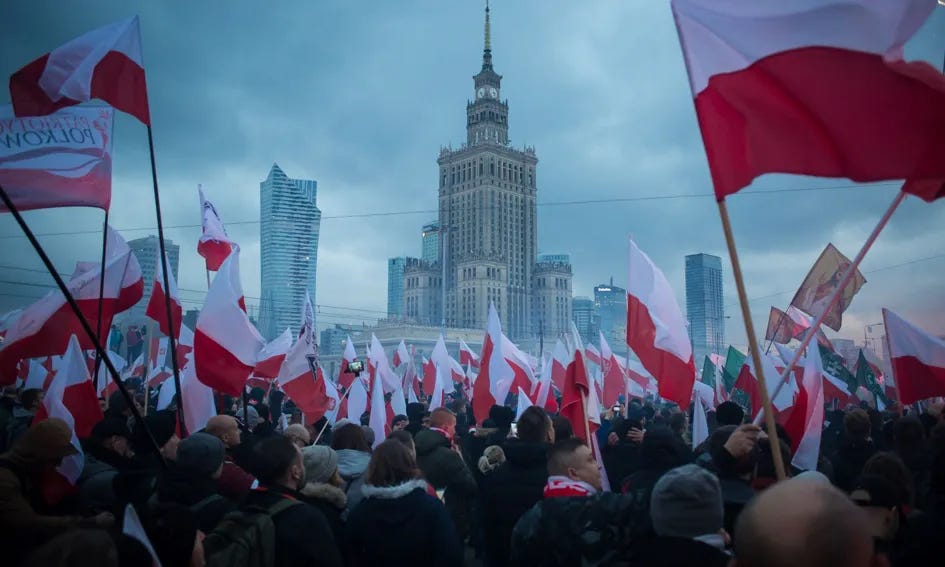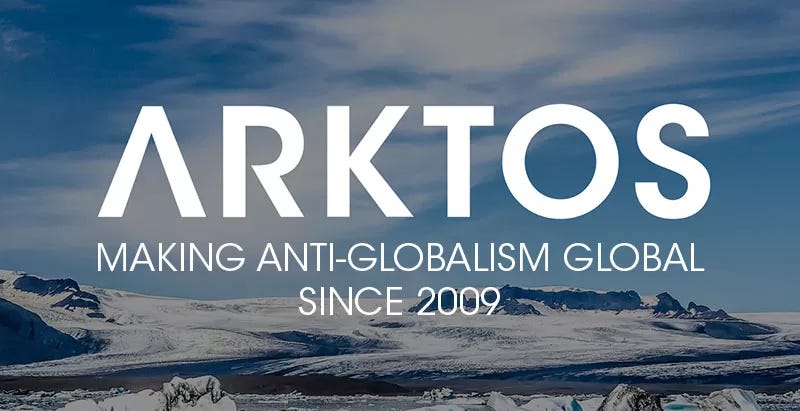Polish Independence & European Reconquest
Arktos on the March
Arktos hosted its third annual gathering of European nationalist and identitarian figures in Warsaw ahead of Poland’s Independence Day March, uniting activists and movements from across Europe to celebrate national sovereignty and pan-European solidarity.
On November 10, Arktos upheld newfound tradition by hosting a gathering of European patriots in Warsaw ahead of the annual Polish Independence Day March.
For the third year in a row, Arktos brought together a lively array of authors, activists, and political figures, reflecting the momentum and spread of the Independence March itself, which continues to break records as the largest assembly point for nationalist, identitarian, and conservative outfits across Europe.
Alongside celebrating the Polish nation’s rich history, the event showcased the common ground of European identitarians, highlighting the deep interconnection between national sovereignty and pan-European solidarity that forms one of the pillars of the New Right.
Counting around 100 participants — a number limited only by venue logistics — the event proved to be the largest to date, having evolved from an informal meet-up to a much-anticipated annual “congress” that fosters ties and exchanges between Polish and international networks. On the Polish side, the Arktos event was once again joined by guests from Konfederacja, the Crown Youth (Korona Młodych) of Grzegorz Braun, who paid a brief visit, as well as members of All-Polish Youth (Młodzież Wszechpolska) and the National Movement (Ruch Narodowy).
As in years past, the gathering also benefited from the support and participation of Polonia Unita, a youth group that unites the Polish diaspora and supports the return of Polish descendants to their homeland. In collaboration with Polonia Unita, Arktos recently published the first ever English translation of Yesterday and Tomorrow: The European Spirit and the Polish Nation by Jan Mosdorf, one of the leading nationalist thinkers of the generation of Poland’s regained independence. The active role of the Polish diaspora was also highlighted by the participation of Tomasz Froelich from Alternative for Germany.
As guests rallied to listen to the line-up of speakers, it became clear that much of Europe’s anti-globalist front was represented at the event, including: German Identitarian movement affiliates, the Irish National Party (Ireland), Revuelta and Vox (Spain), Devenir Europeo (Spain), Lega and Lega Youth (Italy), Svobodní (Czech Republic), Republika Movement (Slovakia), the Our Homeland Movement (Mi Hazánk Mozgalom, Hungary) the Nationalist Student Association (NSV, Flanders), Les Normaux (France), and Reconquista (Portugal). Particularly memorable was the speech by the latter’s Afonso Gonçalves, whom Arktos has interviewed about the 2025 Remigration Summit.
The following day, the Independence March itself upped the ante with a strong showing estimated at more than 100,000.
Under the slogan “One Nation, Strong Poland”, the march affirmed the resolve of thousands of people to travel from across the country and the continent to take part in its ranks. In an event whose aesthetics can genuinely be called spectacular, the march proceeded with pride and impressive scale despite new regulations (such as a ban on the march’s traditional flare brandishing) and transportation closures (Warsaw Central Station was closed for renovation, widely criticized as a political move fomented by the capital’s liberal mayor). In an unprecedented surprise, Polish President Karol Nawrocki personally attended the march.
All in all, the 2025 Independence March demonstrated the unbowed aspiration of Poles and Europeans to cherish their history, preserve their culture, and stand up for sovereignty in their homelands. As a publishing house, media platform, and think tank dedicated to informing and inspiring a European Renaissance, Arktos was pleased to play a part in the festivities and solidarity surrounding Polish Independence Day.




